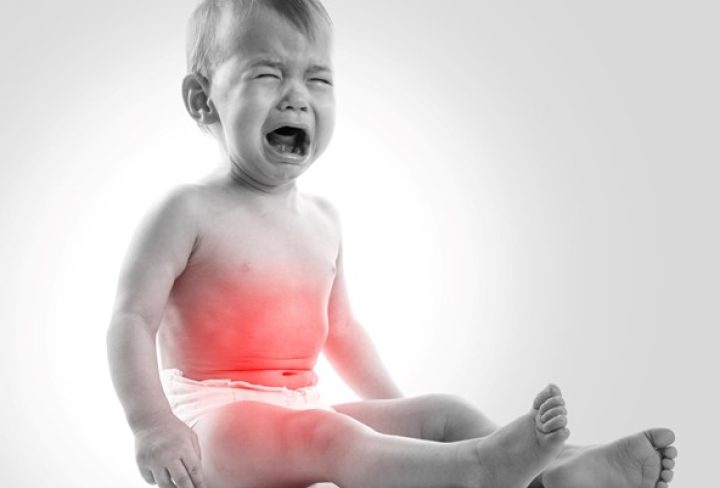Overview:
Constipation is a common gastrointestinal problem among children that can cause discomfort and pain. Understanding the causes, recognizing the symptoms, and implementing effective treatment and preventive measures are essential for managing constipation in children. This article will explore the causes, signs, and symptoms of constipation in children and provide helpful tips for treatment and prevention.
Causes of Constipation in Children
Constipation in children can be caused by various factors, including:
- Potty Training: Constipation is common during early childhood, especially during the potty training phase.
- Introduction of Solid Foods: For formula-fed or breastfed babies, constipation may occur when solid foods are introduced into their diet.
- Emotional Distress: Stress and emotional distress can impact the gut, leading to constipation.
- Poor Diet: A diet lacking in water and fiber, with an excess of processed foods, white bread, cheese, and meats, can increase the risk of constipation.
- Withholding Stools: Children may ignore the urge to go to the bathroom due to fear or wanting to continue playing.
- Illness and Medical Conditions: Various medical conditions, such as celiac disease, thyroid disorders, brain and spine disorders, and colon or rectum blockages, can contribute to constipation.
- Dehydration: Insufficient water intake can result in hard and dry stools, making it difficult to pass.
- Milk Intolerance: Sensitivities to milk proteins can lead to constipation, especially in children under the age of 3.
Signs and Symptoms of Constipation in Children
Recognizing the signs and symptoms of constipation in children is crucial for timely intervention. Look out for the following indicators:
- Infrequent Bowel Movements: Having fewer than three bowel movements per week.
- Hard, Dry Stools: Stools that are difficult to pass and may appear hard or in small pellet-like shapes.
- Pain and Discomfort: Painful bowel movements, rectal bleeding, and stomach pain or cramping.
- Loss of Appetite: A decrease in appetite and lack of interest in food.
- Other Physical Signs: Bloating, flatulence, liquid or pasty stool smears in underwear, blood on hard stools, and grumpiness.
- Behavioral Signs: Crouching, fidgeting, squatting, crossing legs, and signs of discomfort while passing stools.
Constipation Treatment and Preventive Measures
Timely treatment and preventive measures can help alleviate constipation in children. Here are some strategies to consider:
- Provide Fiber-Rich Foods: Include fruits, vegetables, beans, whole-grain bread, and cereals in your child’s diet to promote regular bowel movements.
- Ensure Adequate Fluid Intake: Encourage your child to drink plenty of water and offer high-fiber fluids like prunes, apples, and pear juices.
- Encourage Physical Activity: Regular exercise stimulates digestion and helps prevent constipation. Engage your child in activities such as playing catch, riding bikes, and walking.
- Establish a Toilet Routine: Create a consistent schedule for using the toilet after meals. Make the experience enjoyable by providing a footstool, books, or toys.
- Optimize Toilet Position: Using a footstool and adopting a squatting position can aid in the easier passage of stool.
- Warm Baths and Gentle Tummy Massages: Warm baths and gentle tummy massages can relax the rectum muscles, facilitating bowel movements.
- Apply Petroleum Jelly: Applying a thin layer of petroleum jelly around the anus can lubricate the area and ease stool passage.
When to Consult a Doctor
While most cases of constipation in children are temporary and resolved with home remedies, there are instances when medical attention is necessary. Contact a pediatrician if:
- Constipation persists for more than two weeks.
- Your child experiences severe symptoms such as high fever, abdominal swelling, or rectal prolapse.
- There is rectal bleeding or sudden weight loss.
- Your child exhibits difficulty walking or has significant pain during bowel movements.
Remember, it is essential to follow a healthcare provider’s advice before administering any medications or interventions.
Conclusion
Constipation is a common issue among children, but with proper understanding and implementation of preventive measures, it can be effectively managed. By promoting a healthy diet, encouraging physical activity, and establishing regular toilet routines, parents can support their child’s digestive health and reduce the occurrence of constipation. If concerns persist or severe symptoms arise, it is important to consult a healthcare professional for further evaluation and guidance. Remember, early intervention and appropriate care can help children find relief from constipation and maintain a healthy gastrointestinal system.

